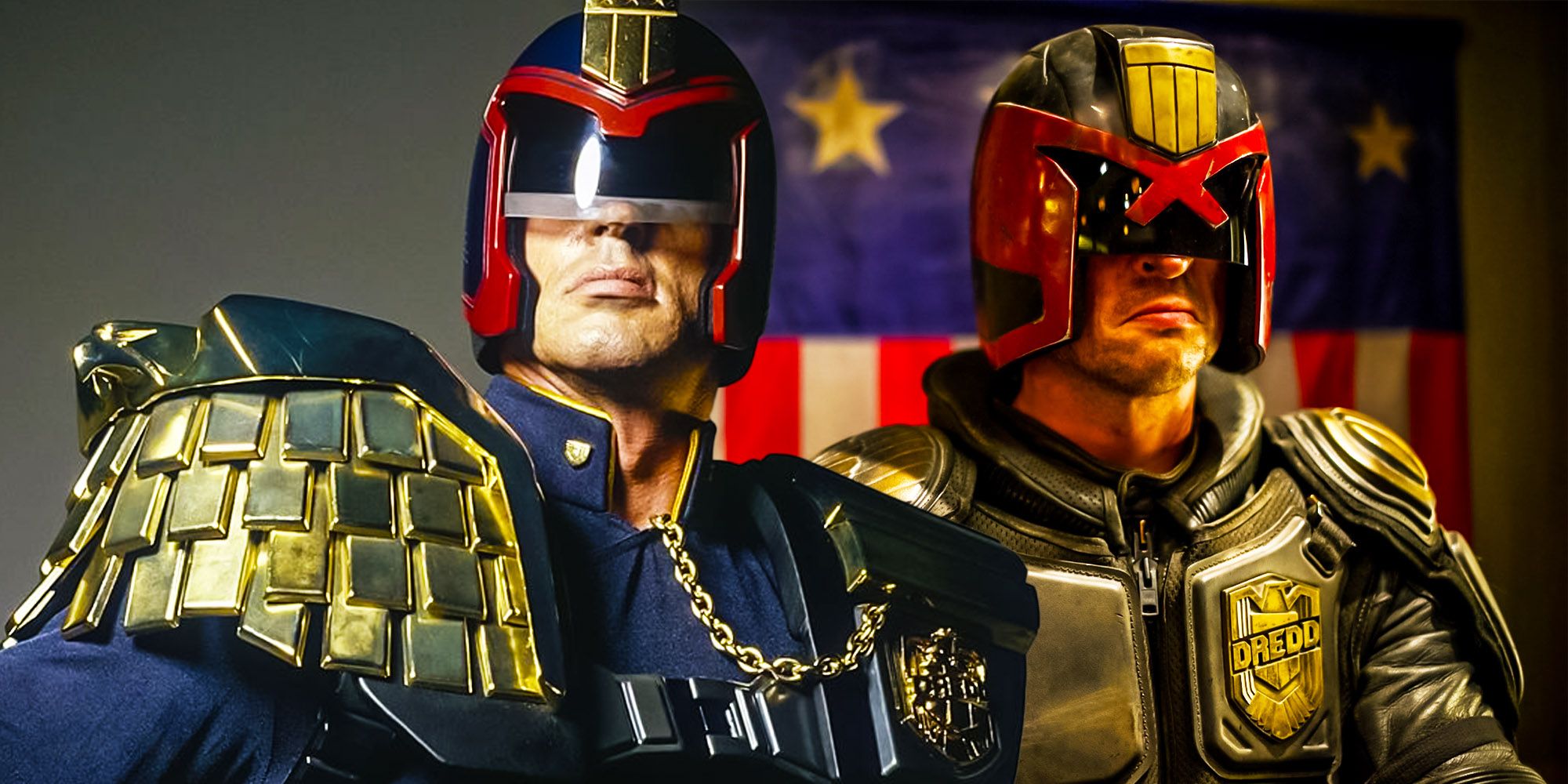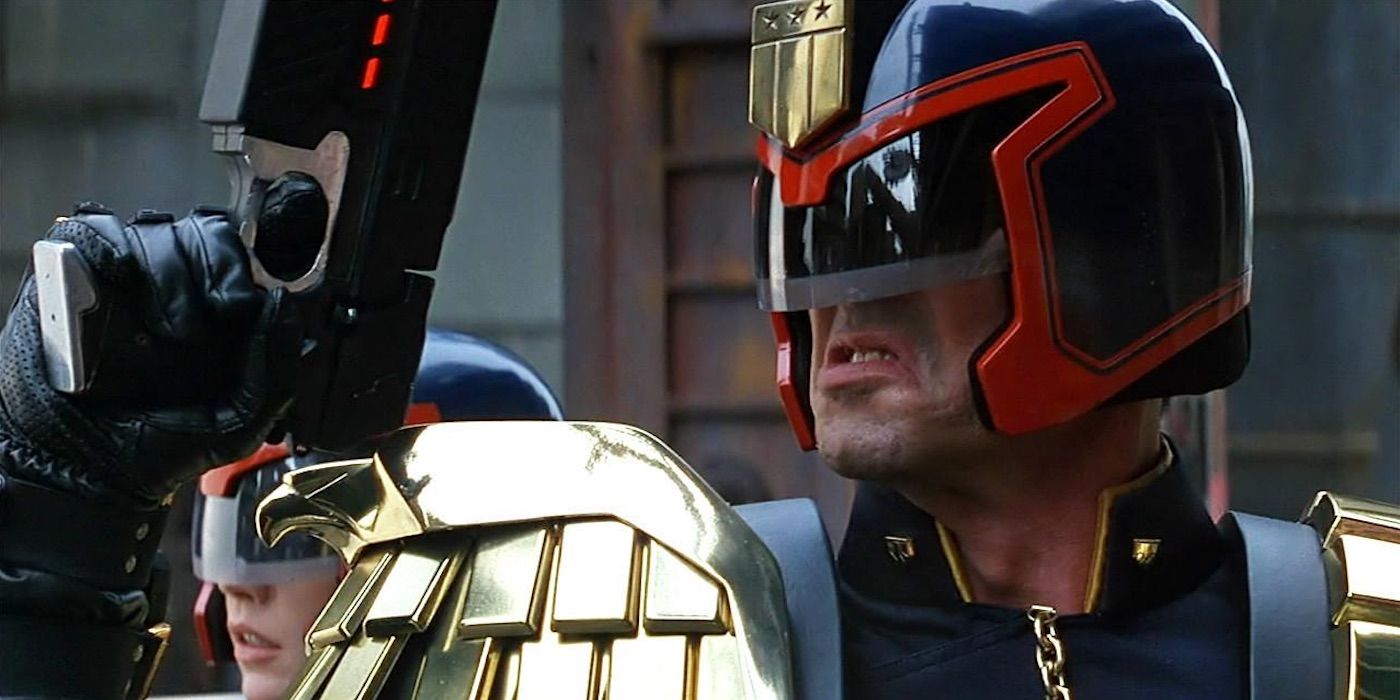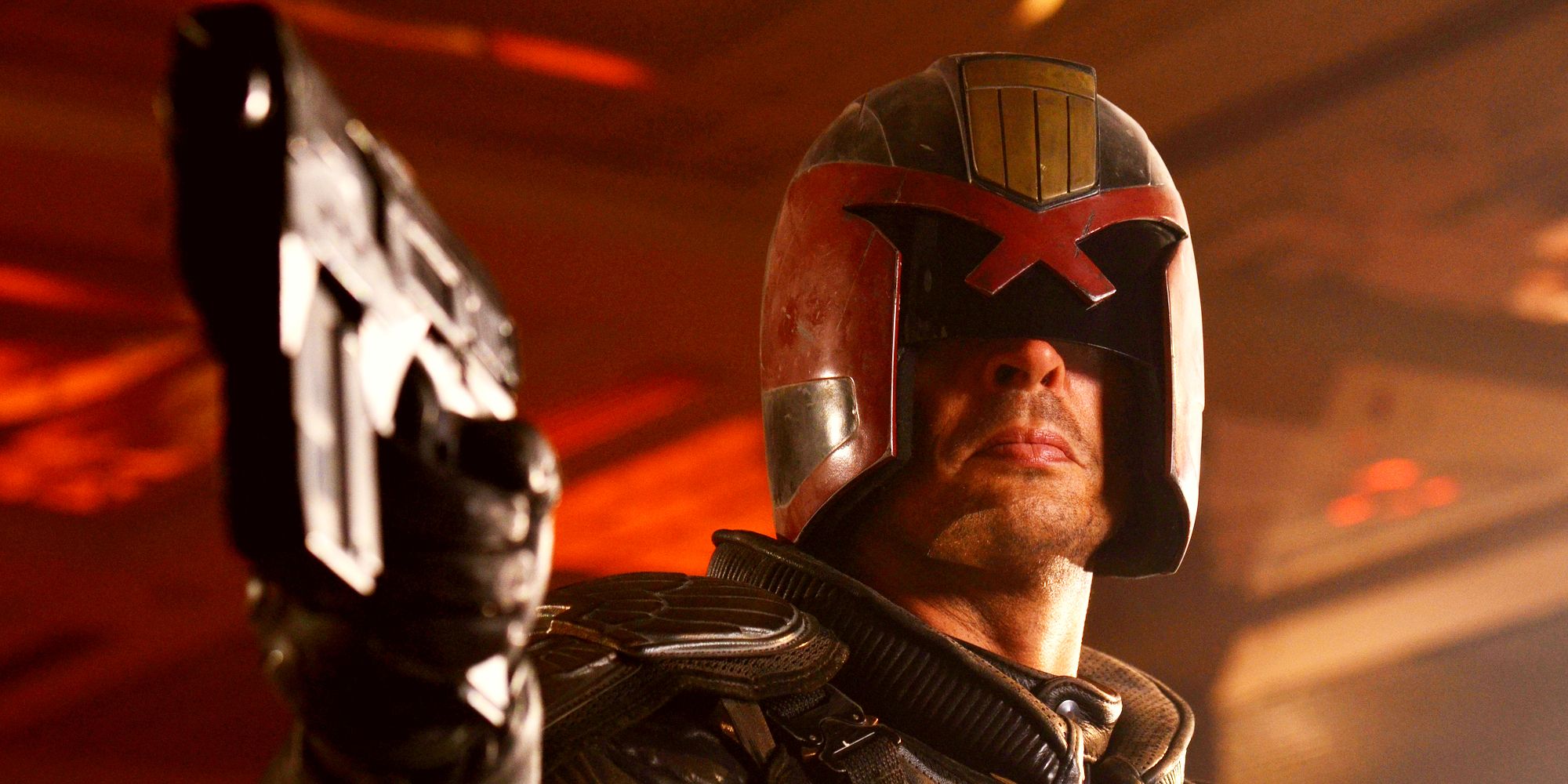2012's Dredd continues to stand as a cult classic, with the reboot avoiding all the failings in its 1995 counterpart Judge Dredd. Long before Karl Urban's portrayal of The Boys' Billy Butcher, he donned the helmet of a judge in the hard-edged comic book movie Dredd. Sadly, the film's debut in theaters in September 2012 was unfortunately not greeted by packed cinema screens with the movie becoming an unfortunate box office failure. As Dredd has since come to show, however, not every path to success is a direct one.
A decade after its release, Dredd's popularity is greater than ever before after years of the movie being discovered on home media. In Dredd, the title character (Karl Urban) supervises Judge apprentice Anderson (Olivia Thirlby) on a drug bust in the mega-block known as Peach Trees under the ruthless rule of crime boss Ma-Ma (Lena Headey). With Dredd's uncompromisingly rough, gory style and slow-motion sequences established by Ma-Ma's drug "Slow-Mo", Dredd stands as the best of Karl Urban's comic book movies as the Judge Dredd reboot fans of the character had been waiting for since the disappointment of the Sylvester Stallone-led Judge Dredd (which Stallone himself has expressed his own issues with).
Dredd's initial failure in 2012 has been attributed to numerous elements, from ineffective marketing to the negative reputation of Judge Dredd turning away audiences as well as unfortunate comparisons with the similar plot of The Raid: Redemption, which released a few months earlier. Whatever the reason for Dredd's failure to revitalize the character on the big-screen, time has been extremely kind to the film, with many remaining eager for the prospect of an eventual Dredd 2 (in lieu of Urban taking on Wolverine), and which Karl Urban himself has also endorsed. Here's how Dredd overcame the failure of Judge Dredd and its own theatrical underperformance to become a revered underground success story a decade later.
Dredd Understands Its Character (& Mega-City One) Better Than Judge Dredd Did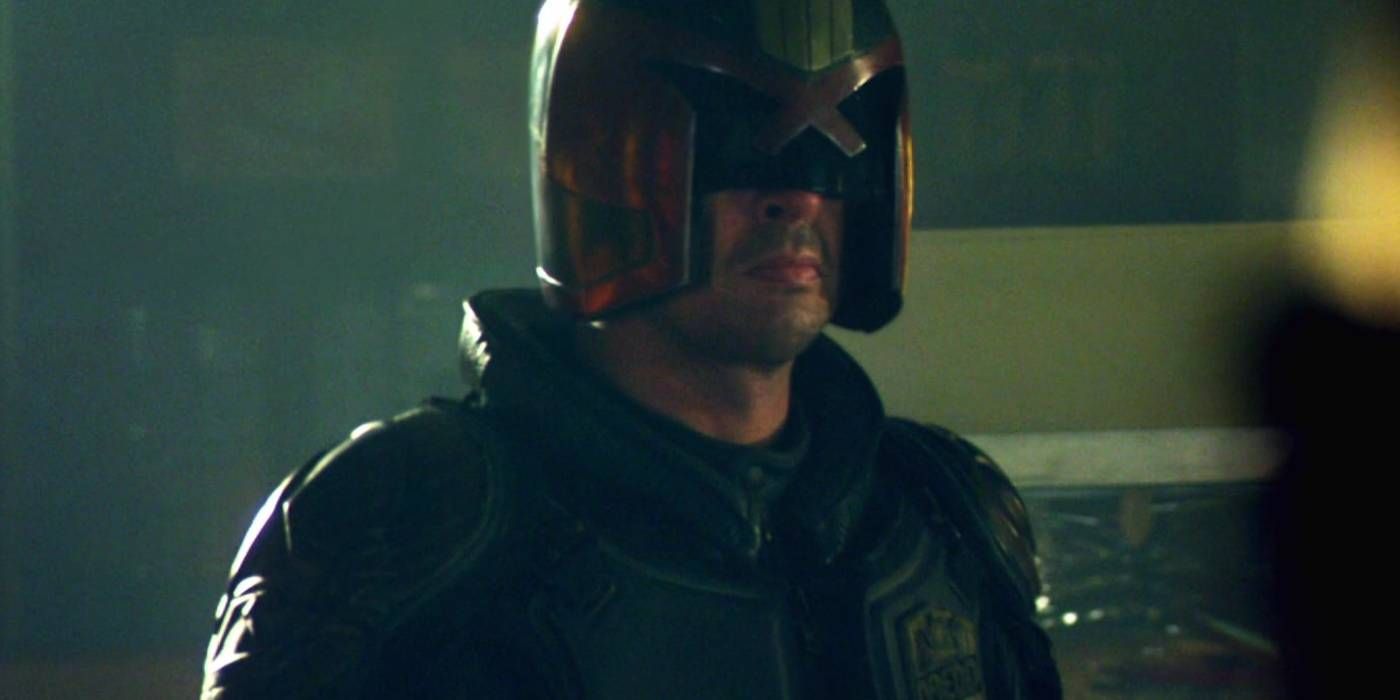
On the basic level of being a comic book adaptation, Judge Dredd is drastically different from Dredd, beginning with the title character himself. Dredd’s version of the character is almost robotic in his adherence to the law. Reciting assessment protocols to Anderson and coldly issuing sentences to violators with rote memorization, Urban's Dredd is also never shown without his helmet on, a staple of the comics abandoned in Judge Dredd, much to the dismay of the character's fans. The Dredd portrayed by Stallone in Judge Dredd was also an adherent to the law, but the script did not provide any similar basis for Dredd’s coldness, instead overshadowed by Stallone's innate cheerfulness from the Rocky movies. This was also a contrast for the setting of the two films.
The sprawling futuristic metropolis of Mega-City One seen in Judge Dredd is one where crime and overpopulation appear to be more nuisances than the chaos of a dystopian society. That was not the case for Dredd, which made certain to drive home Mega-City One as a crime-ridden, grimy hellscape of violence and misery. The world of Mega-City One was a difference between one with problems and one that had gone off the rails, while Dredd himself had an even deeper contrast in how he was portrayed.
Stallone's Dredd Was Too Heroic (& Urban Was The Opposite)
On paper, casting an A-list action hero like Sylvester Stallone for a lesser-known comic book character like Judge Dredd (at least outside of 2000 A.D. comics's native U.K.) made sense in terms of marketability. The issue was that Judge Dredd did not end up being much more than just another Stallone action movie with prison elements, and not one of his better ones. By the time of the defeat of Dredd's villainous brother Rico (Armand Assante), Judge Dredd has also undergone a character change where he has taken on a kinder outlook, believing that he can enforce the law without the overreach he once felt was necessary. Karl Urban’s Dredd, by contrast, was nothing like this at all.
Urban’s Dredd begins and ends his 2012 reboot with the steadfast belief that harsh sentences and swift executions are not only morally defensible, but imperative for the shaky stability of Mega City-One. The only wavering Urban’s Dredd experiences is a slight one, where he approves Anderson for Judgeship after the Peach Trees mission entirely on the basis of her performance on the job over her past test failings and handful of flubs. In the end, Stallone's version of Dredd was a borderline superhero with none of the edge Stallone brought to Samaritan years later, while Urban depicted a dark and disturbing anti-hero. With Urban channeling Dredd as the grimacing, rageful Judge without even the slightest reluctance to pull the trigger of his Lawgiver, Dredd presented audiences with the faceless critique of American law enforcement that he was born to be.
Dredd Benefited From Telling A Smaller Story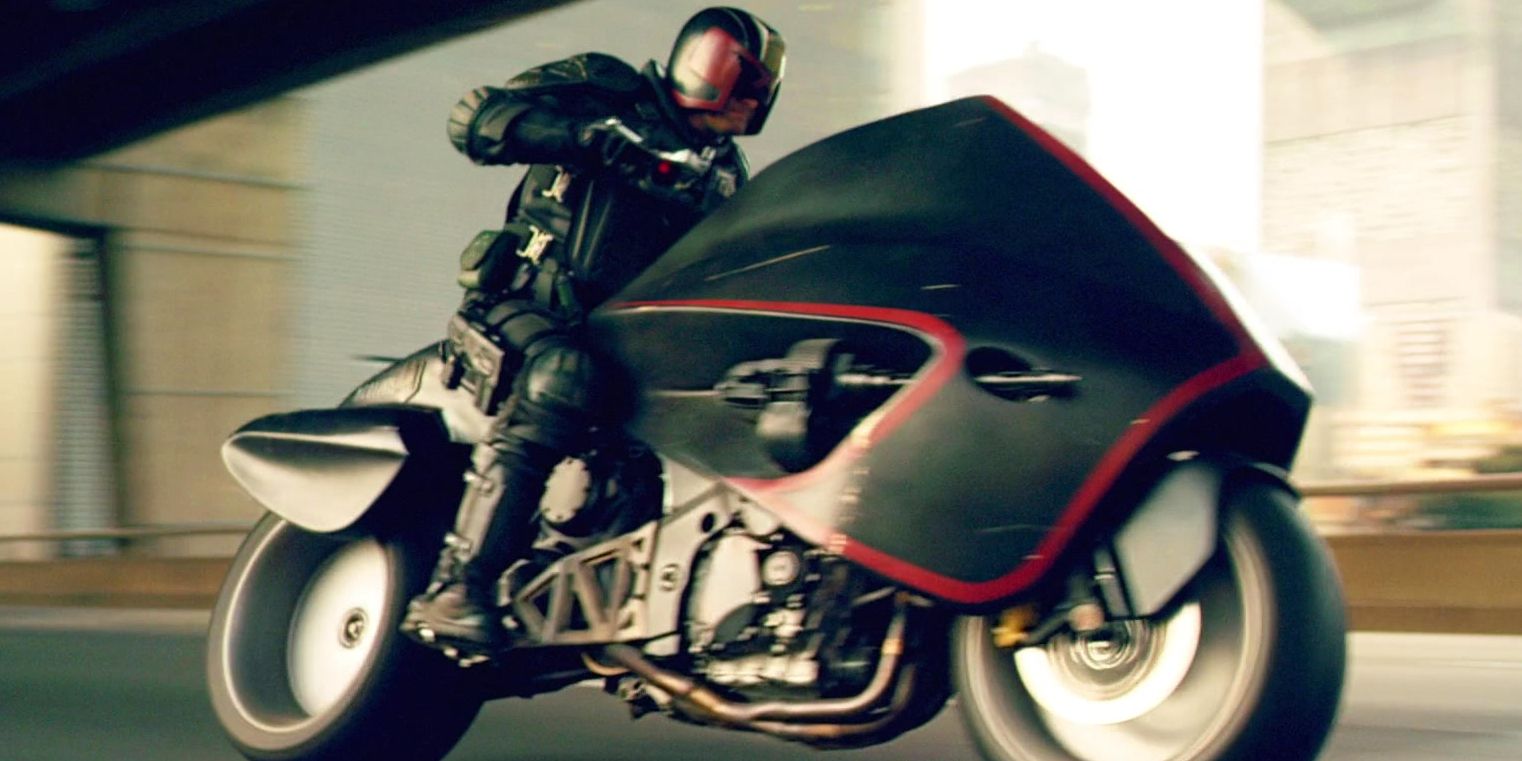
One other key advantage Dredd carries is the relatively small stakes of its plot compared to Judge Dredd, with Dredd following him on a typical day on the job. With Anderson by his side for a Judge’s assessment during their Peach Trees mission, Dredd took audiences for essentially a ride-along mission with them in the kind of situation he has repeatedly dealt with as an occupational hazard.
While the aforementioned comparisons to The Raid might have initially hobbled Dredd, that has also been a part of Dredd’s growing popularity. Not only are Dredd’s comparisons to The Raid retroactively complimentary with the action classic the latter is, Dredd’s focus on a single day’s mission and the mentorship of Dredd over Anderson made it a compact and enthralling action movie that gave Dredd a strong re-introduction to moviegoers. With a decade of positive reception snowballing to look back on, it can be said that Dredd is the rare comic book movie where avoiding the source material’s larger mythology, villains, and most supporting characters was a stroke of genius.
Why 2012's Dredd Has Stood The Test Of Time
After a decade, Dredd’s popularity that only seems to grow with each passing year is testimony to the lessons it can impart. That one need not have ever read a Judge Dredd comic to enjoy Dredd is only the most obvious (not unlike the subsequent popularity of Urban's Butcher role on The Boys), but the film’s longevity also goes back to its general approach. In taking what would be a B-level Judge Dredd story and making it the basis for his big-screen return, Dredd brought the most central aspects of him as the essence of the film.
The Slow-Mo sequences and brutally harsh action scenes of Dredd made it an R-rated comic book movie like none other, but without Dredd himself, it would all be for naught. Urban’s portrayal of Dredd remains a true dystopian Dirty Harry, and one felt with a vengeance at all times despite Urban’s face always being half covered. Compared to the relatively generic Sylvester Stallone-led action movie, Dredd showed lovers of the comic an authentic onscreen portrayal, while general audiences were presented with a seemingly heroic, yet morally questionable protagonist who never seemed to waver in his role as a violent enforcer. That dichotomy is almost entirely absent from Sylvester Stallone's version. Given how existential this conflict is for the character, it's no wonder the earlier film was found wanting.
If Dredd is proof of anything, it is that the immediate failure of a reboot to revive its given IP does not dictate that legacy remaining set in stone forever. Eschewing Judge Dredd's goofy clone conquest plot, Dredd re-introduced its anti-hero with dystopian, R-rated sci-fi grit by telling a simple story of Dredd on what is for him a very routine job with a young recruit by his side. Judge Dredd's negative reception, among other factors, kept that return for being an immediately heralded one, but after 10 years, Dredd's beloved reputation, however long it took to build, is as steadfast as ever.

